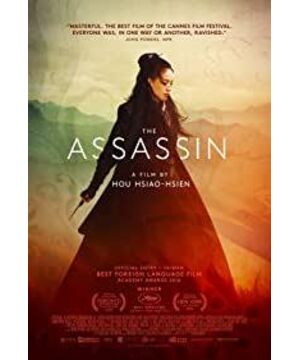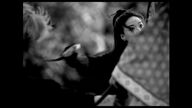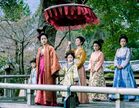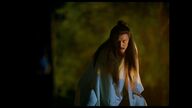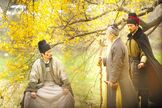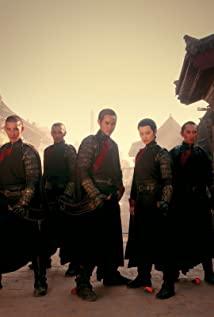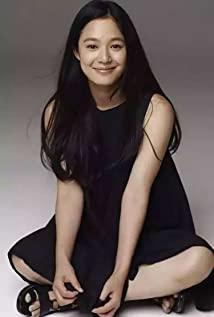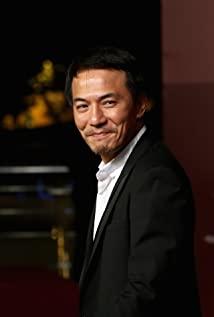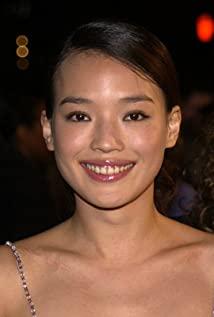The original work is a Tang Dynasty notebook novel ( http://blog.sina.com.cn/s/blog_4e6af0be0102vtxd.html ), which follows the "strange" literary tradition, with the main purpose of recording strange people and strange things, so it does not pay attention Logic and cause and effect. Why did the nun accept Yinniang as a disciple? Why should Yinniang marry a husband who knows nothing but mirrors? There is no reason. Only with his "wonderfulness", the more he can show the "wonder" of this person. And the movie has screwed all the characters into the big machine of political struggle, and the logic and rationality of the action are there, but the wonderful artistic conception of the original is gone.
If the film’s storyline and historical background are in line with each other, the screenwriters have obviously done a lot of work. It is worthy of appreciation for the current nonsense history. But the direction of these efforts is an artificial realm that is "reasonable and reasonable" everywhere, and there is no unreasonable place, but it makes the world lifeless. The original book does not pay attention to reason, not ignoring reason, but is based on the people’s special worldview, that is, everything in this world is causal, but the human perspective may not be able to exhaust these causes and effects, so just use the "unknown" Just record these stories from an angle. This kind of "incompleteness" instead gives the story a vivid sense of reality. Those strange people who are beyond reason are just angry because of their strangeness.
I thought the characterization of "Assassin Nie Yinniang" was a failure. Nie Yinniang is portrayed as a killer trapped between justice and emotion, and the level is very shallow.
Yinniang's view of justice comes from her master, Princess Charles Schwab, and Princess Charles Schwab's position is very vague. In the beginning, her view of right and wrong was the same as in the original book. Seeing the wicked "count the mistakes one by one" and punish them, she simply walked the way for the sky. Seeing the wicked love something, "cut what he loves first", it's ruthless! Later, the plot revealed that she was an imperial party, and the motive for killing Tian Ji'an was to cut the vassal for the court. So the contradiction between conspiring for the overall situation or conspiring for a small part came out. In the end, she attacked Nie Yinniang, because she hated her for "not having a strong Dao heart" and wanted to cut off the evildoers. It's just that this "Tao" is the way of the emperor. Li Tang advocated Taoism and restrained Buddhism. This is probably the reason why the screenwriter changed the nun in the original work to Taoism.
However, the information revealed in the script was enough to subvert her motives. It turned out that sixteen years ago, when Tian Ji’an became hot, she also staged a live drama in which Tian Xu was assassinated. Princess Jiacheng of that day also said that “the young master is young, and the loss of the master will be chaotic”. Reasons prevented this assassination. From this point of view, her reprimanding Yinniang may not be reprimanding herself, regretting the beginning. In the heart of the fluttering white Taoist, in fact, he was also very entangled. This is no different from the overwhelming "Exterminator" in the original book. The same attempted assassination of Yinniang almost copied the master's story.
The master is entangled with emotion and reason, while the apprentice is entangled with emotion and courtesy. The story of "Assassin Nie Yinniang", to put it bluntly, is nothing more than cousin and cousin, marriage and extramarital matters, if you change the feudal town of the late Tang Dynasty into a mansion gate in the Republic of China, from "Spring in a Small City" to Qiong Yao drama, the tradition of the Republic of affliction drama Naturally, it is obvious. Hou Xiaoxian interprets Yinniang's "hidden" as the "hidden" of inner forbearance, which I disagree with. The Yinniang who was sobbing in the kit, the Yinniang who looked miserable from beginning to end, was a woman whose wings had been cut off by the ethical defense after the Song Dynasty, not a Datang woman who dared to love and hate. Yu Xuanji in "Tang Dynasty Bold and Unrestrained Girl" "want to marry, but didn't want to be a concubine, wanted to be a monk, but couldn't bear the hair, so I had to be a Taoist priest." With a smile at the corners of his eyes and eyebrows, it is more like picking up from the street in the original book. A husband, changing the lord is like Nie Yinniang changing clothes. They choose fate instead of being chosen by fate. The world of Datang was originally very vast.
Justice obeys emotions, and emotions are lost to etiquette. The scenes of this scene are long and beautiful, and no matter how delicate the cup is, it is not the realm of Tang novels in my imagination.
Let's talk about the so-called "novelty" of the film. Costume drama is limited by the limitations of time and space, and often the influence of traditional opera is inevitable. The ancients in movies have style in every move, and this style mostly comes from traditional stage art. From "Anger" to "New Dragon Inn", the director has something to do, and the audience likes to hear and see, and everyone is happy. However, as the art of film, there are other possibilities. Japanese, European and American costume films have already evolved to the realm of complete detail. Therefore, the story and drama, emotions, sorrows, sorrows and joys are something modern people can empathize with. Director Hou made the Tang Dynasty a sense of life. It was not easy, but he was very capable and deserved to be applauded.
But this ability is sometimes stretched. In front of the meeting, Luo Bin and Cao Jun’s exaggerated tones and actions, I pondered for a long time-is this a legacy of the Southern dynasty talks? Until Tian Xing spoke up, I understood that this was because ancient prose was difficult to understand, so Dao Hou had to make him speak more "joyful".
In the several fights in the film, the assassinations of Da Lao, Yinniang and Tian Ji'an are all unremarkable in the eaves. It was the best to snipe Tian Xing on the way. The motion shots, the space outside the painting, the suddenness and the rhythm of abrupt halt, the key is that all its methods match the whole film. Nie Yinniang and Kong Konger's duel, and the master's sneak attack, can be said to be very failures. It is completely the fast editing method of the "ordinary martial arts film" that Dao Hou looks down on. Dao Hou was honest, admitting that the actors were not good enough to "play straightforwardly" and had to succumb to trickery.
This makes people look down on it very much. It's not shameful not to know the slapping scene. A master like Mizoguchi Kenji made the slack scenes like "Miyamoto Musashi". When filming "Tadashinzo", he simply skipped the whole part of the slapping scene. Hou Xiaoxian is not willing to hide, so you can take a good photo. In such a critical scene, he was unwilling to exert his strength and brains to carry out his life-like long shots to the end, and the result was to open the skylight. In my opinion, these two scenes are like two big scars on the face of the beauty in "Assassin Nie Yinniang".
Looking at the script, Yinniang's skills are elegant and agile. The swings fly up to the trees and the beams in the lobby are like flying swallows. In the movie, in order to obey Hou Dao's artistic style, these agile figures were abandoned, just like her heart bound by love and courtesy.
There is no need to talk about misunderstandings about this film. From the perspective of a fan, I just want to say that "Assassin Nie Yinniang" is actually not that special. Regarding Tang Dynasty movies, there is "Tang Dynasty Bold and Unrestrained Girl" in front of the spirits, and "Tempting Monk" before the life. There was "My Tang Dynasty Brothers" before. "Assassin Nie Yinniang" is a useful attempt. Director Hou has made a beautiful film, but it is not the legend of the Tang Dynasty in my mind.
View more about The Assassin reviews


